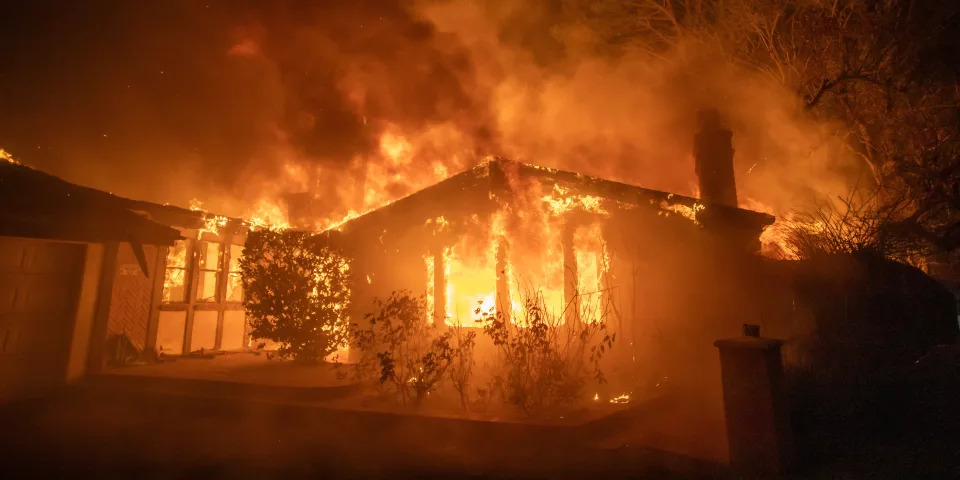News
Insurance stocks tumble as LA fires threaten record losses

Insurance stocks tumbled Thursday as wildfires in Los Angeles pose record-high losses.
Allstate plunged as much as 4%, while Chubb and Travelers fell roughly 3% at lows. Progressive and American International Group also saw shares drop.
The downturn comes as traders worry that massive losses from the fires could hit the insurers' earnings.
As of Thursday, analysts from JPMorgan expect the wildfires to be the costliest in US history, with over a $20 billion hit to insurers to and reinsurers as the fires continue to wreak massive damages across the region.
The analysts say those losses could be even bigger if the fires are not contained, and will likely be "significantly more severe" than the Camp Fires that hit the state in 2018, which posed a current record of $10 billion in insured losses.
The analysts say Allstate has the biggest exposure to the most recent losses, with a 6% share of California's home insurance market.
Chubb and Travelers are also among the publicly traded insurers most exposed to the state, while commercial property insurers like American International Group and Kinsale Capital Group could also face some risk, they said.
Auto insurer Progressive, meanwhile, could be spared an earnings hit since it has minimal exposure to home insurance in California, the analysts said. It could actually stand to benefit if its competitors like State Farm raise rates to make up for fire-related losses, they added.
The analysts, led by Jimmy Bhullar, estimate the fires' total economic losses will amount to around $50 billion, doubling their previous estimate.
Other sources say the total losses could be even higher, with AccuWeather estimating a damage and economic loss between $135 billion and $150 billion as of Thursday.
"This wildfire disaster is going to be yet another major challenge for the insurance industry," AccuWeather's chief meteorologist Jonathan Porter said in a press release .
"Families and businesses need to be able to purchase insurance at a reasonable rate, but insurance companies cannot continue absorbing huge loss after huge loss. This is a major issue that society needs to actually address in a world of increasing extreme weather impacts," he added.
Read the original article on Business Insider

